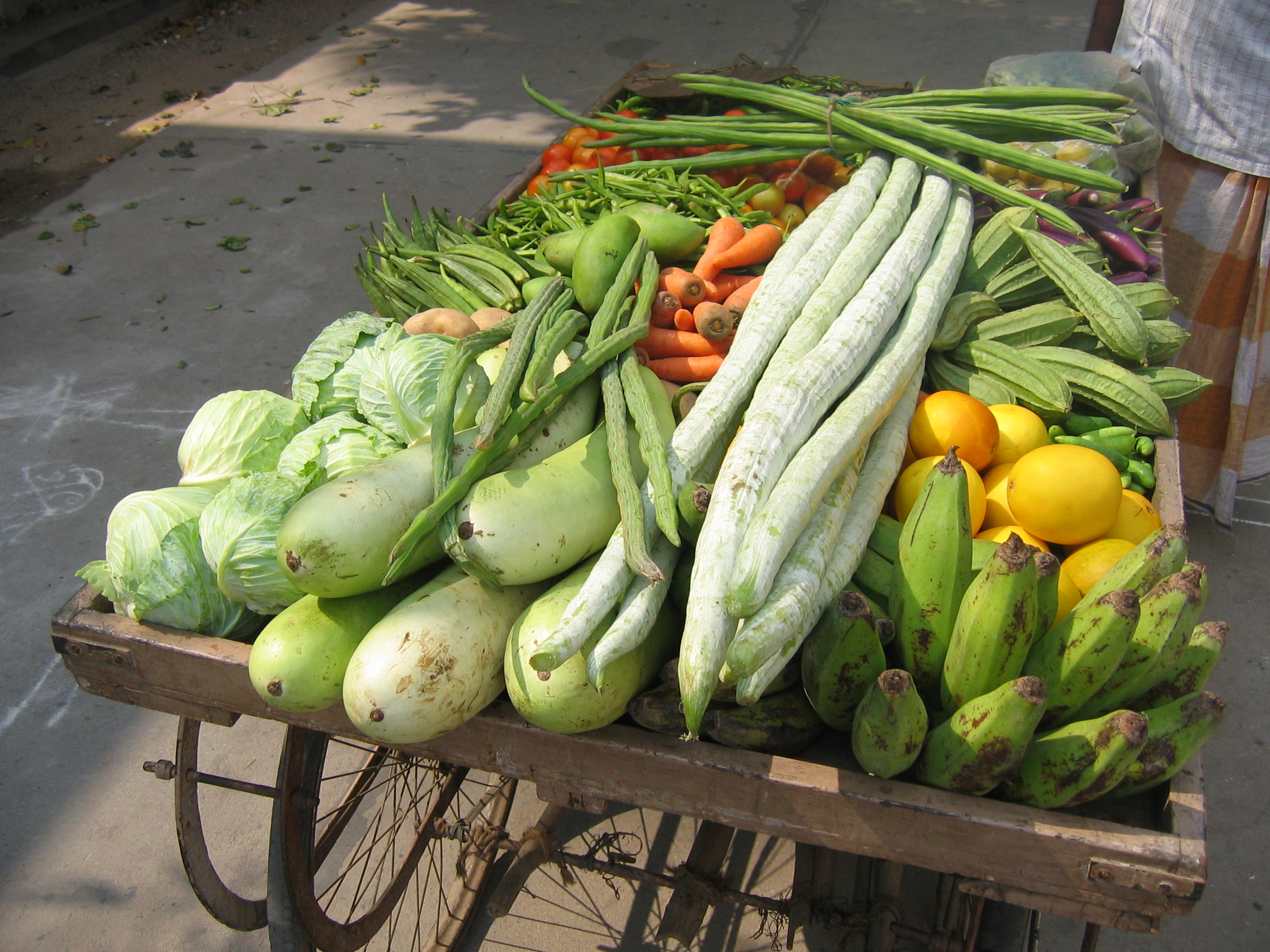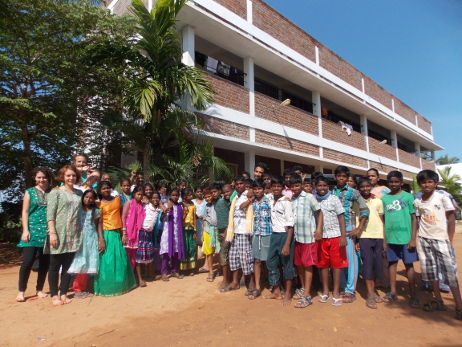Penned by Board Member Alo Pal, based on a conversation with Social Entrepreneurship Program beneficiary Sangitha (name changed)
 Sangitha is illiterate. The only assembly of peers she ever interacted with was in the Anganwadi (child care centre) when she was little. Orphaned at 8, she lived with her older sister and was married off at 18. Her husband was illiterate too and she gave birth to her first child within a year of marriage. Her husband had a drinking problem and did not have a steady job. He used to drive rented cycle-rickshaws and tricycles, brought back little or no money home and was abusive. When her daughter was 8 months old Sangitha moved out of her house and moved in with her cousin. Her cousin was a widow, her husband had wasted himself drinking. For the next eight years, Sangitha lived in her cousin’s house and worked as a help in five houses. Her day began at four in the morning at “Pattani Kadai’, a popular snack shop. In those eight years she had two more children.
Sangitha is illiterate. The only assembly of peers she ever interacted with was in the Anganwadi (child care centre) when she was little. Orphaned at 8, she lived with her older sister and was married off at 18. Her husband was illiterate too and she gave birth to her first child within a year of marriage. Her husband had a drinking problem and did not have a steady job. He used to drive rented cycle-rickshaws and tricycles, brought back little or no money home and was abusive. When her daughter was 8 months old Sangitha moved out of her house and moved in with her cousin. Her cousin was a widow, her husband had wasted himself drinking. For the next eight years, Sangitha lived in her cousin’s house and worked as a help in five houses. Her day began at four in the morning at “Pattani Kadai’, a popular snack shop. In those eight years she had two more children.
“Had you moved on with someone else?” I ask her.
“No” she said, “My husband used to drop by every now and then demanding money, and I had to be available for him physically because if I didn’t, he threatened me with rumors of disrepute he would spread about my character.”
After 8 years, Sangitha and her cousin had a dispute and she moved out of the latter’s house. It was around this time that Sangitha’s husband, who for the last 8 years lived practically homeless in the Pondicherry market, came back to her, very sick, semi-paralyzed and dying. Sangitha took him in and nursed him back to health. It took him two years to become sober. Sangitha continued to work as a house maid, while her husband worked at a vegetable shop for 100 rupees a day. One day when they sought a loan from the vegetable shop owner to treat their younger daughter who was very sick, he refused to help. That is when Sangitha told her husband they had to start their own business. They got a loan from another friend and bought a vegetable cart. It was at this cart that Prakash, who used to run our day care shelter in the town, recognized one of the girls helping out in the family business. She and her younger sister used to drop in at the day care centre earlier. With meagre capital they stocked their cart with very small quantities of seasonal vegetables. Sharana decided to intervene.
 All it needed was a loan of ten thousand rupees for Sangitha to procure a bigger stock of vegetables from the wholesale market. The cycle of procurement and sale went up a few notches and daily income increased visibly. Perishables and essential services have rescued our beneficiaries often from penury. So too with Sangitha and her husband. The cart was a necessity too since in COVID times Sangitha had to stop working in the houses as a house help. Today, her older daughter pursuing her B Com and her younger daughter just completed a two-year Kidney Dialysis course under our Back-to-School programme. Her third child goes to a Government school and any supplementary cost is met by her parents. What’s more, the younger daughter is interning for three months and the Pondicherry Kidney Centre and the monthly fee of a thousand rupees is paid for her parents. From a generation of illiterate parents with unsteady jobs and income, this family has come a long way indeed.
All it needed was a loan of ten thousand rupees for Sangitha to procure a bigger stock of vegetables from the wholesale market. The cycle of procurement and sale went up a few notches and daily income increased visibly. Perishables and essential services have rescued our beneficiaries often from penury. So too with Sangitha and her husband. The cart was a necessity too since in COVID times Sangitha had to stop working in the houses as a house help. Today, her older daughter pursuing her B Com and her younger daughter just completed a two-year Kidney Dialysis course under our Back-to-School programme. Her third child goes to a Government school and any supplementary cost is met by her parents. What’s more, the younger daughter is interning for three months and the Pondicherry Kidney Centre and the monthly fee of a thousand rupees is paid for her parents. From a generation of illiterate parents with unsteady jobs and income, this family has come a long way indeed.
But this isn’t why this story fascinates me. By any yardstick, Sangitha is a woman of exceptional resilience and strength. But as my interview with her drew to a close I couldn’t help but ask her if she realized her generosity, inconceivable for a person like me, in taking her husband back after living through hell for eight years. Her husband was semi-paralyzed and tottering at death’s door, an incurable alcoholic with whom she had lived a life of humiliation and exploitation.
But Sangitha looked at me perplexed. That is not how she saw her life and interpreted her decisions. Taking her husband in, nursing him back to health, giving him the confidence to open his own vegetables cart, and living a peaceful happy collaboration with him in business and at home was not something she ever thought of skewing by making it into an equation of debt and obligation. “But then he treated you so badly” I add, “does he even know he owes his life to you?” Again, her calm countenance and shake of head with a smile stopped me on my tracks from infusing an unnecessary sense of right and wrong, exploitation and forgiveness that my conditioning prodded me to. Who was I to judge her decision as a sign of weakness, when she had lived a life of such indomitable courage and strength. What was she or I to gain from a definition of feminism that would have destroyed her happy home today.
In fact, it was I who had to understand the value of a second chance. That every man deserved a chance at redemption and I was no one to extract from that balance a sense of gratitude and obligation. From what I heard from Vadivu, our Lead Social Worker: “Her husband is a very nice person madam, he is very helpful and good”. If this wasn’t an unspoken acknowledgement of gratitude for this second lease of life, what could possibly be.
The Social Entrepreneurship Program gives interest-free loans to underprivileged women to start a small business. 100+ women so far have been given loans and many have changed their lives through their businesses.












